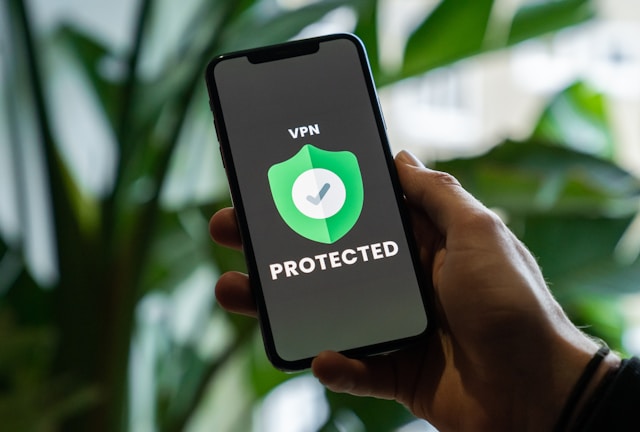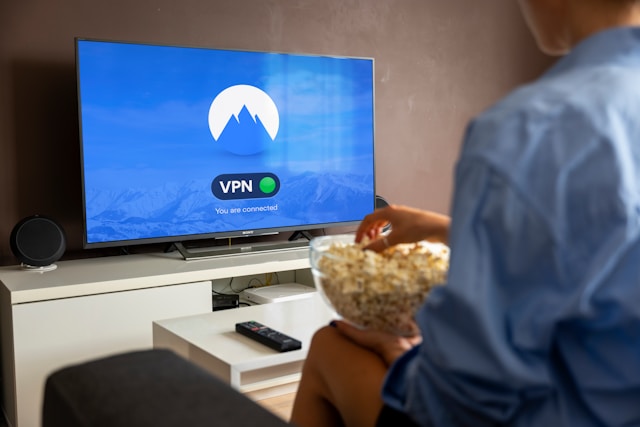When trying to understand what VPN is, we can imagine a secure tunnel that allows us to browse the internet privately and securely. It encrypts our internet connection to protect our online activities from being seen by others.
Using a VPN helps protect your privacy online by hiding your IP address (your unique identifier on the internet) and encrypting your internet traffic.
VPN adds an extra layer of security when using public Wi-Fi networks (like in cafes or airports), making it safer to send sensitive information such as passwords or banking details.

How does VPN work?
VPN encrypts (scrambles) your data before it leaves your device, making it unreadable to anyone who might intercept it.
When you connect to a VPN, your internet traffic is routed through a secure server operated by the VPN provider. This server acts as a middleman between your device and the internet.
VPN can also change your IP address to make it appear as if you are browsing from a different location. This can be useful for accessing websites or content that might be restricted in your country.
In some countries with internet censorship, a VPN can help bypass these restrictions and access a more open internet.
Choose a reputable VPN provider that values privacy and security. There are both free and paid VPN services, with paid services often offering better performance and more features.

